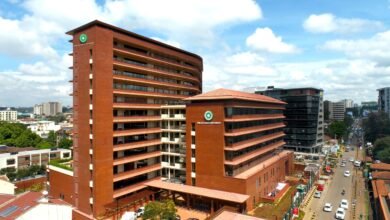
Kenya’s President William Ruto and the United Kingdom’s Prime Minster Liz Truss – both fresh at the helm are now faced with new trade challenges following the post Brext deal and new trade tariffs which were passed by the East African Community (EAC).
Kenya is on the cross roads after the UK protested newly introduced trade tariffs by the regional bloc in which it’s a member state.
The UK is demanding that Kenya sticks to the signed partnership provisions of Economic Partnership Agreement (EPA) it signed in December 2020.
The deal was signed in London by International Trade Minister Ranil Jayawardena and Cabinet Secretary for Trade, Betty Maina to ensure that all companies operating in Kenya can continue to benefit from duty-free access to the UK market.
It was also meant to support jobs and economic development in Kenya, as well as avoid possible disruption to UK businesses who will be able to continue to import Kenyan products duty and quote free, such as fresh vegetables and flowers.
UK is asking to be exempted from the newly raised tax charges within EAC which took effect on July 1 this year, arguing that they do not mirror the deal Nairobi signed with London.
The new levy affects products that include iron and steel, edible oils, furniture, leather products, and fresh-cut flowers.
Should Nairobi honour the request by UK, Trade Principal Secretary Johnson Weru said other countries who have a trade partnership with the EAC’s richest economy might demand similar favours.
Partner States of the EAC entered into the Common External Tariff (CET) deal to rise the tariffs on May 5 this year, for imports entering the bloc by 35 percent.
Other products on the raised CET tax band include fruits, nuts, sugar and confectionery, coffee, tea, spices, head gears, ceramic products and paints.
It implies that goods and services entering Burundi, Kenya, Rwanda, South Sudan, Uganda, and Tanzania will cost more, but UK wants to be exempted from this measures.
According to a report by Nation, Kenya is pursuing a new bilateral trade deal with the UK post-Brexit to cushion its economy.
This is after member states in the EAC failed to conclude an EPA with the EU.
London by International Trade Minister Ranil Jayawardena and Cabinet Secretary for Trade, Betty Maina in December 2020, was meant to ensure that all companies operating in Kenya can continue to benefit from duty-free access to the UK market.
It will support jobs and economic development in Kenya, as well as avoid possible disruption to UK businesses who will be able to continue to import Kenyan products duty and quote free, such as fresh vegetables and flowers.
In 2020, Kenya exported Ksh.53.2 billion ($435M) to UK. The main products exported from Kenya to United Kingdom were Tea Ksh.17.4 billion ($141M), Cut Flowers Ksh.13 billion ($108M), and Legumes Ksh.3.6 billion ($30.5M).
In 25 years to 20220, the exports of Kenya to United Kingdom have increased at an annualized rate of 2.45 percent, from Ksh.28.6 billion $238M in 1995 to Ksh.53.2 billion $435M in 2020.





